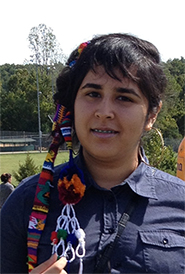![]()
I am a self-identified evangelical who was raised in Catholicism. I am also a confused evangelical who has noticed a subtle, mean-spirited criticism of Catholicism. I only noticed this long after I broke from the Catholic path and decided that my own personal reasons for choosing to become an evangelical ultimately did not give me the right to assert my specific beliefs on anybody.
My realization for my desperate need for tolerance became evident when I saw how many people I wanted to keep in my life identified as Catholic, family and friends alike. Almost my entire family on my paternal side is Catholic, including four aunts who either have been or continue to be practicing nuns, a grandmother who never fails to pray the rosary and a cousin aspiring to the priesthood. Some of my closest relationships are with Catholics. We even talk with one another about our differences and manage to maintain respect towards each other’s faith.
Historically, Protestants and Catholics have not been on good terms with one another. Remember the Diet of Worms’ ruling for Martin Luther’s writings? What about King Henry the VII’s impulsive split from the Catholic church in order to selfishly divorce? Remember the violent Thirty Years’ War? Or the more recent Troubles in Northern Ireland? Both sides have been terroristic toward one another and continue to be.
It sounds as if both Catholics and evangelicals are avoiding a challenge to some deep-seated prejudices if we are closed-minded to the differences between the faiths to the extent that full-scale wars have played out. Even today, most parts of the world see a clear polarization between the two sides. Some are reviled enemies.
What many do not understand is that the religion we were raised in is often the one we will stick with in our adult years. What that means is that the faith we decide on has shaped some of our core beliefs on why we matter in this world. To attack one’s religion is to attack the individual, not an institution.
Often what happens, however, is that some core beliefs, such as loving God above all or Jesus being truly divine, are overpassed in favor of disputing secondary beliefs, ones that, while important to understanding the world we live in, ultimately will not matter when we face Jesus.
Why are evangelicals so divided in their denominations? Why do Catholics pray through saints? Why are evangelicals so relativistic? Why do Catholics hold on to tradition? Why are Evangelicals so uncomfortable truly facing the powerless? Why is the Pope the final answer to theological disputes?
The questions are truly important and relevant for a believer. But as a Catholic friend once told me, “I believe in Jesus Christ, I believe he was virgin-born, that He is the only way to salvation. I love Jesus and he is my lord. I do not understand why people do not see this.”
We have much more in common than we realize, and even if we did not, Jesus’ sincerest command was to love one another, just as he loved us. His statement was not directed at just Evangelicals or just Catholics, but everyone.





